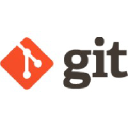The Top 5 Version Control Systems in 2024
1. Git
- Streamlined version control for efficient collaboration
- Robust branching and merging capabilities
- Comprehensive support for large-scale projects

Discover a powerful Git tool designed to streamline version control, enhance collaboration, and optimize your development workflow. With robust features, seamless integration, and positive user reviews, this tool is the ideal choice for businesses seeking a reliable version control solution.
2. Apache Subversion (SVN)
- Enterprise-class centralized version control system
- Reliable and safe data storage
- Widely adopted in both open source and corporate environments

Apache Subversion (SVN) is an enterprise-class centralized version control system that provides reliable and safe data storage, making it widely adopted in both open source and corporate environments.
It offers comprehensive documentation, security updates, and seamless integration, making it a valuable asset for businesses of all sizes.
3. Mercurial
- User-friendly interface
- Extensive version control capabilities
- Seamless collaboration features

Mercurial is a versatile version control tool designed to meet the needs of development teams, offering a user-friendly interface, extensive version control capabilities, and seamless collaboration features to enhance project efficiency.
4. Perforce
- Distributed and centralized version control support
- Advanced security features for protecting valuable assets
- Seamless integration with various development tools

Perforce is a powerful version control system designed to meet the needs of businesses and individual developers. With advanced security features, seamless collaboration, and reliable performance, it's the ideal solution for managing code across distributed teams.
Whether you're working on a small project or a large-scale enterprise development, Perforce provides the tools you need to effectively manage your version control processes.
5. Team Foundation Version Control (TFVC)
- Centralized version control system for efficient code collaboration
- Integrates seamlessly with Visual Studio and Azure DevOps
- Robust command reference and REST API for advanced control and automation

Team Foundation Version Control (TFVC) offers a centralized version control system designed for efficient code collaboration and management. With seamless integration with Visual Studio and Azure DevOps, TFVC provides a robust command reference and REST API for advanced control and automation, empowering developers to streamline their version control processes.
Discover the powerful features, benefits, and competitive pricing plans of Team Foundation Version Control (TFVC) to optimize your code development workflow and enhance collaboration within your development team.
FAQ
What are the key features to consider when choosing a version control system?
When selecting a version control system, it's crucial to consider the scalability, flexibility, and integration capabilities with other development tools. Additionally, security measures and collaboration features play a vital role in ensuring smooth workflow and project management.
How do version control systems enhance software development processes?
Version control systems facilitate team collaboration by providing a centralized platform for code sharing, review, and merging. Furthermore, they ensure version consistency, track modifications, and enable reverting to previous states to maintain code integrity and streamline development.
What role does automation play in modern version control systems?
Modern version control systems leverage automation to enhance continuous integration and deployment processes. This includes automated testing, build pipelines, and deployment workflows, which streamline development cycles and reduce manual errors.
How do version control systems address the challenge of managing concurrent development branches?
Version control systems employ branching and merging strategies to manage concurrent development efforts effectively. By isolating features or fixes into separate branches and then merging them back into the main codebase, developers can maintain code stability while working in parallel.
What considerations are important for the adoption of version control systems by small businesses or independent developers?
For small businesses or independent developers, it's essential to prioritize ease of use, affordability, and support for diverse project types when choosing a version control system. Additionally, seamless integration with commonly used IDEs and project management tools can significantly enhance productivity.

FAQ
When selecting a version control system, it's crucial to consider the scalability, flexibility, and integration capabilities with other development tools. Additionally, security measures and collaboration features play a vital role in ensuring smooth workflow and project management.
Version control systems facilitate team collaboration by providing a centralized platform for code sharing, review, and merging. Furthermore, they ensure version consistency, track modifications, and enable reverting to previous states to maintain code integrity and streamline development.
Modern version control systems leverage automation to enhance continuous integration and deployment processes. This includes automated testing, build pipelines, and deployment workflows, which streamline development cycles and reduce manual errors.
Version control systems employ branching and merging strategies to manage concurrent development efforts effectively. By isolating features or fixes into separate branches and then merging them back into the main codebase, developers can maintain code stability while working in parallel.
For small businesses or independent developers, it's essential to prioritize ease of use, affordability, and support for diverse project types when choosing a version control system. Additionally, seamless integration with commonly used IDEs and project management tools can significantly enhance productivity.